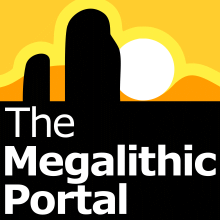<< News >> Evidence of 130,000 year old sea voyage found in Crete
Submitted by coldrum on Saturday, 08 January 2011 Page Views: 6496
Natural PlacesCountry: Greece Region: Crete Type: Cave or Rock ShelterInternal Links:
Archaeologists in the Greek island of Crete have uncovered startling evidence on Monday showing that early humans navigated across open waters thousands of years earlier than previously believed. According to the Greek Culture Ministry, archaeological experts from Greece and the United States discovered along the southern coast of the island rough axes and other tools believed to be between 130,000 and 700,000 years old during a survey of the caves and rock shelters located in the areas of Plakias and Preveli.
The called said discovery made by the archaeologists working with the American School of Classical Studies based in Athens "the most ancient sign of early navigation worldwide."
The tools that have been discovered were described to be simple hand tools that were made out of stone. Archaeologists found a similarity between these tools and those associated to the Homo heidelbergensis (also referred to as the Heidelberg Man) and Homo erectus, early ancestors of modern humans that lived in Africa 200,000 years ago.
"Up to now, we had no proof of Early Stone Age presence on Crete," Maria Vlazaki--Senior Ministry Archaeologist--told the Associated Press, referring to the conclusive evidence previously found on the island that humans settled and inhabited Crete no earlier than the Neolithic Period.
Crete became an island when it broke off from mainland Greece about five million years ago. The fact that Crete was already an island during this time, the ministry stated that the tools are "the earliest evidence in the world of ancient seafaring."
Before the discovery of the stone tools, the earliest evidence of open-sea travel in Greece was dated to be 11,000 years ago.
"The findings not only prove marine travel in the Mediterranean existed tens of thousands of years prior to what was known until today," the ministry said in a report published by the AFP. "They also change calculations about early man's cognitive abilities."
Vlazaki pointed out that it is unclear where the hominids that created these tools sailed from, or whether they permanently settled on the island after arriving.
"They may have come from Africa or from the east," she said. "Future study should help."
The team of archaeologists that made the discovery has already applied for a permission to conduct further and more thorough excavations of the area. Greek authorities are expected to grant their approval on the request later in the year.
Read more, with links in the Digital Journal:
Note: "the most ancient sign of early navigation worldwide."






 We would like to know more about this location. Please feel free to add a brief description and any relevant information in your own language.
We would like to know more about this location. Please feel free to add a brief description and any relevant information in your own language. Wir möchten mehr über diese Stätte erfahren. Bitte zögern Sie nicht, eine kurze Beschreibung und relevante Informationen in Deutsch hinzuzufügen.
Wir möchten mehr über diese Stätte erfahren. Bitte zögern Sie nicht, eine kurze Beschreibung und relevante Informationen in Deutsch hinzuzufügen. Nous aimerions en savoir encore un peu sur les lieux. S'il vous plaît n'hesitez pas à ajouter une courte description et tous les renseignements pertinents dans votre propre langue.
Nous aimerions en savoir encore un peu sur les lieux. S'il vous plaît n'hesitez pas à ajouter une courte description et tous les renseignements pertinents dans votre propre langue. Quisieramos informarnos un poco más de las lugares. No dude en añadir una breve descripción y otros datos relevantes en su propio idioma.
Quisieramos informarnos un poco más de las lugares. No dude en añadir una breve descripción y otros datos relevantes en su propio idioma.